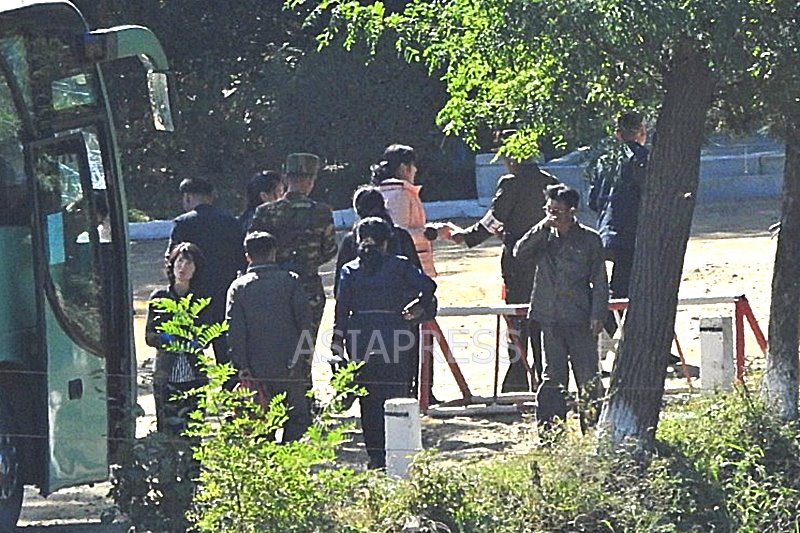
◆High School Girls Secretly Watching K-pop Videos.
Junghee (pseudonym), a high-class junior high school student in a northwestern city of North Korea, is the daughter of my reporting partner, Ms. Park. In Japanese terms, she is a high school girl. Using Junghee and her friends as samples, Ms. Park often tells me about the lifestyle of today's youth. One of the most exciting things she told me recently was, "These days, Hallyu culture, which is popular among my daughters' generation, is more about singing videos than dramas. The ones with young girls dance and sing in groups."
It's about the music videos of K-pop idols! I knew that some old South Korean songs were gaining popularity in North Korea, but I was surprised to learn that K-pop music was gaining popularity secretly too. It's exciting to think that North Korean schoolgirls are watching Bangtan Boys (BTS) and Twice. However, this does not mean that the Kim Jong-un regime has loosened its control over Korean culture.
Related Articlefa-arrow-circle-right<Inside N. Korea> Finally, "Crash Landing on You" is starting to spread in darkness! Interview with the women who risked their lives to watch it.
◆The new law provides for five years in prison just for watching.
In December 2020, the North Korean authorities announced the "Law on the Elimination of Reactionary Thought and Culture." Although the text of the article is not yet public, the following outline is clear. "People who directly watch or keep South Korean movies, videos, books, songs, pictures, photos, etc., will be sentenced to between five and 15 years in prison, while those who cause the influx or dissemination of such content will be sentenced to life imprisonment or death." In other words, it is a "Korean Wave suppression law" that imposes severe punishment on anyone who comes into contact with any Korean content.
"I have been giving lectures to residents on the purpose of the law and examples of crackdowns. We often conduct unannounced raids, and many people have been caught in various places. Even watching Korean dramas can be a life-threatening experience," said Ms. Park.
Fearing the influence of South Korea, the North Korean authorities have been cracking down hard for more than twenty years. However, instead of being eradicated, South Korean videos and songs recorded on digital media have been copied and spread cheaply and in large quantities. Last year, Kim Jong-un's regime, fed up with the situation, raised the fierce slogan, "Clean up the impure and degenerate culture." The regime then decided to wipe out the culture, even flirting with the death penalty.
◆The Target of the Crackdown is Youth
Now, it is the youth who are being targeted in the crackdown. Kim Jong-un sent a letter to a youth organization event held at the end of April, in which he included the following passage: "Let the youth recognize the evil and bad results of the reactionary ideological culture, which is like a malignant tumour, and never ignore even the slightest element that promotes anti-socialist and non-socialist actions or undermines the sound spirit of the youth."
It can be read as a confession that many young people are obsessed with South Korean culture and do not believe in socialism.
Now, what is Park's view of this?
"The younger generation today doesn't think that socialism, as the government calls it, will improve their future. Since young people have a fearless streak, I doubt they won't stop seeking out Hallyu culture."
Maybe Junghee is secretly gathering with her friends and practising K-pop dance like high school students in Japan and South Korea. Let's ask Ms. Park (ISHIMARU Jiro).
- <Inside N. Korea> Order to abolish all "hidden fields." No individual farmers are allowed: Farmers are afraid of starvation. (2021-05-11 11:39:18)
- <Inside N. Korea> Finally, "Crash Landing on You" is starting to spread in darkness! Interview with the women who risked their lives to watch it. (2021-05-06 12:05:49)
- <Inside N. Korea> "Show me your texts and photos": Strict Censorship of Cell Phones Comes with Threat of Death Penalty (2021-04-27 14:38:01)
- <Inside N. Korea> Kim Regime’s Crackdown on Individual Business Activities Begins: Ruthless Confiscation of Goods Forces Traders to Consider Defection (2021-04-26 16:16:11)
- Kim Jong-un Regime Fears Digital Resistance: less than 0.1% of N. Koreans Can Access the Internet (ISHIMARU Jiro) (2021-04-19 17:36:50)

![[Video Report] Nominal Farm Mobilization: People Feel Squeezed](https://www.asiapress.org/rimjin-gang/wp-content/uploads/2018/07/mqdefault-150x150.jpg)























